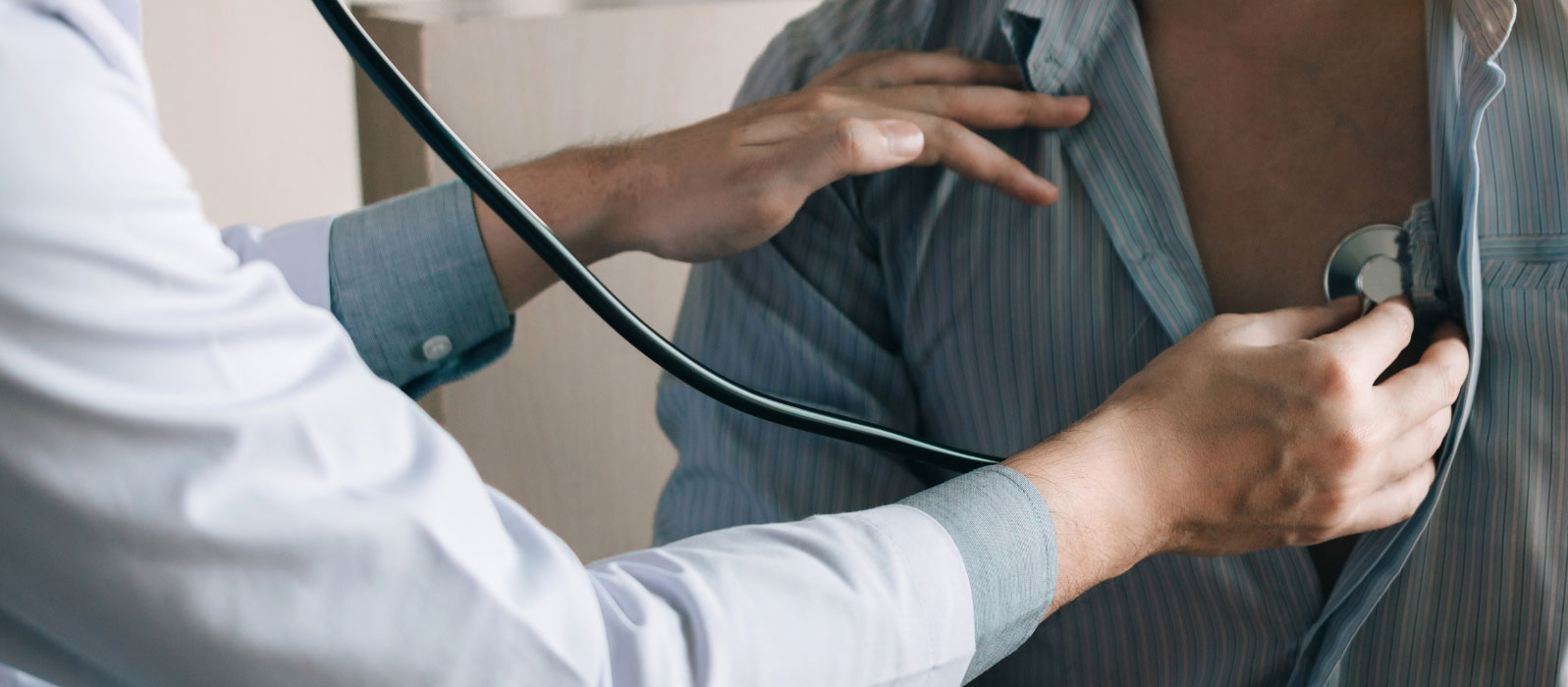
Have you had a check-up yet? It is so important to see your healthcare provider regularly, whether you have something going on or completely healthy. St John’s Physician Partners state that if you are looking to have optimal health then you must have proactive management. They state that regular check-ups play a key role in a proactive approach. Routine follow-ups can help to detect potential health issues, hopefully, in the early stages. Preventive care is different from person to person. There are specific screenings and treatments that depend on your age, medical history, gender, and current health status.
Building the Foundation
The first step to regular check-ups is building a relationship with your healthcare provider. It is going to be and set the foundation of your health journey. When you have a relationship with your provider, it allows you to feel seen and heard. This will allow you to trust your provider and make you feel comfortable during your appointments. But if you do not have a provider, then finding a provider is going to be your first step. Finding a healthcare provider is also important for any successful health journey. But where do you begin to find a provider? You can check out your insurance’s website; there, you will most likely find a “find a provider” option. You can also call your insurance company with the phone number on the back of your insurance card. You can perform an internet search using Google, Yahoo, etc. You can talk to friends and family to see who they trust as their healthcare provider, or who they would recommend. You can also reach out to the dedicated nurses with Hilb Group, Danielle Herndon, and Leslie Taylor. Danielle Herndon can be reached at phone number 401-773-7054 or e-mail dherndon@hilbgroup.com. Leslie Taylor can be reached at phone number 401-773-7993 or e-mail ltaylor@hilbgroup.com.
What is Involved with a Regular Check-Up?
A routine, regular check-up is a very comprehensive health assessment designed to detect and monitor any potential health issues. There are screenings and tests that are recommended during these appointments, but they can vary with different age groups.
- Infants and Children – Pediatricians usually focus on developmental milestones, growth patterns, and a vaccination schedule during any early childhood check-ups. Vision and hearing tests help identify potential issues that might impact a child’s learning and development. Blood tests may be conducted to check for lead levels and other essential markers. As children transition into adolescence and young adulthood, health priorities shift to include screenings for mental health, reproductive health, and vaccinations. This also includes discussions around healthy lifestyle choices, such as diet and exercise, which can help build the foundation for a lifetime of well-being.
- Adolescents and Teens – Regular check-ups for teenagers commonly involve discussion about puberty, mental health, and lifestyle choices. Vision and hearing tests continue to be essential, and screenings for scoliosis may be conducted. Immunizations are updated, and the healthcare provider may discuss topics like substance abuse and safe behaviors.
- Adults (18-64 years old)-Blood pressure measurements are routine since hypertension (HTN) is a common concern in this specific age group. Cholesterol screenings help assess your cardiovascular health and identify potential risks for heart disease. Blood glucose tests may be recommended to monitor for diabetes. Cancer screenings, such as mammograms for breast cancer, pap smears for cervical cancer, and colonoscopies for colorectal cancer, are becoming more prevalent. Screenings often target common concerns like cardiovascular health, cholesterol levels, and cancer screenings based on your gender and family history. Regular check-ups can help screen for early detection of conditions that may become prevalent as you enter middle age.
- Seniors (65 years and older)-Bone density tests are often conducted to assess the risk of osteoporosis. Screening for cognitive function may be included to detect signs of conditions like Alzheimer’s disease. Vaccinations, including the flu vaccine and pneumonia vaccine, become crucial to protect seniors from infections. Regular monitoring of chronic conditions such as diabetes and HTN continues. Men should receive check-ups that include prostate cancer screenings, such as a prostate-specific antigen (PSA) test. Women may undergo mammograms for breast cancer screening, bone density tests for osteoporosis, and regular gynecological exams. Health priorities include screenings for conditions like osteoporosis, diabetes, and cognitive function. A comprehensive assessment includes screenings for cardiovascular health, joint function, and preventative measures against age-related diseases, which become essential to maintaining a high quality of life.
No matter what age someone is, regular check-ups involve monitoring vital signs like your heart rate, respiratory rate, and body temperature. Your body mass index (BMI) is often calculated to assess your weight in relation to your height. Your healthcare provider may also offer preventive counseling during your routine physical. This may include discussions about maintaining a healthy diet, engaging in regular physical activity, and avoiding tobacco and excessive alcohol consumption.
Common Fears of Routine Physical
Sometimes, we need to acknowledge and address any reasons for avoiding a routine physical. Some factors that can affect our ability to complete routine physical appointments include time constraints and fear, which can deter you from prioritizing your health.
- Time Constraints – Many people perceive regular check-ups as time-consuming, leading you to postpone or skip appointments. There is a solution to understand the time efficiency of preventive care. Remember that time invested in a check-up can prevent more extensive health issues in the future and may help you shift your perspective.
- Fear – You may have fear of the unknown, fear of receiving bad news, or even fear of medical environments, which can prevent you from seeking regular check-ups. A solution to this includes gathering information about the process, so you know what to expect at your appointment. Transparent communication about any procedure, the purpose of tests, and understanding the commitment of your healthcare provider to your well-being can help alleviate any fears you may have.
The main goals include empowering you with the knowledge and inspiration you need to prioritize your well-being through regular check-ups, fostering a positive and proactive approach to healthcare.
Benefits of a Routine Check-Up
Regular check-ups can be crucial for proactive healthcare, enabling early detection of potential health issues, facilitating effective treatment, and promoting overall well-being by allowing for personalized care and lifestyle recommendations. The benefits of a routine check-up include:
- Early Detection and Prevention – Regular check-ups allow your provider to identify potential health problems, like high blood pressure or elevated cholesterol, before they become serious. Routine screenings, such as mammograms, colonoscopies, and pap smears, are important for early detection of cancers and other diseases, significantly improving any possible treatment outcomes. Early detection and treatment can also prevent minor health issues from escalating into chronic conditions, reducing the risk of long-term complications.
- Personalized Care and Monitoring – Regular check-ups allow you to build a strong relationship with your healthcare provider, who can better understand your health history and individual needs. If you have a chronic condition, then monitoring its progression, adjusting treatment plans, and preventing complications is going to be essential with regular check-ups. Regular, routine check-ups ensure that you receive timely vaccinations and screenings, which can keep you protected against any preventable disease.
- Promoting a Healthy Lifestyle – Check-ups can help identify risk factors for chronic diseases, allowing you to make lifestyle changes to reduce your risk. Your healthcare provider may provide personalized advice and support for maintaining a healthy weight, eating a balanced diet, and engaging in regular physical activity. Routine physicals can also be a good opportunity to discuss mental health concerns and access resources for support.
- Cost-Effectiveness – Early detection and treatment can prevent costly interventions and hospitalizations associated with advanced stages of disease. Regular physicals help ensure that healthcare resources are used effectively by focusing on prevention and early intervention.
Getting preventive care reduces your risk of disease, disabilities, and even death. Preventive and routine care is essential to your overall well-being.
Other Preventive Visits
Yes, preventive visits include a routine physical, screenings, and even vaccinations. But did you know that your eyes and teeth are also part of preventive care? Eye health is a part of your overall wellness. Routine eye exams are recommended to maintain healthy vision. Of course, the frequency of your visits will depend on your specific situation. In this situation, listening to the recommendations of your eye care provider is essential. Dental care is also an important aspect of preventive care. You should be receiving:
- Dental Exams – Check the health of your teeth and gums. Also helps your dental provider to identify any issues, and early treatments can prevent more serious conditions.
- Dental Cleanings – Plaque and tartar increase your risk for cavities and gum disease. Regular cleanings help to remove plaque and tartar from your tooth surfaces.
- Oral Cancer Screenings – This is completed by most dental providers during your dental exams.
- Oral Hygiene – Education provided by your dental provider or dental hygienist will demonstrate how to brush and floss properly so you can keep your teeth and gums healthy between visits.
Conclusion
Preventive visits are routine check-ups that include preventive screenings such as cancer screenings, vaccinations, blood pressure and vital sign checks, labs that also include cholesterol levels, and health screening for lifestyle and medical history. Preventive screenings are important to catch any disease, especially in the early stages. This will allow for a better treatment and possibly a better outcome than you would have if a disease were caught in later stages of progression. If you have not had a routine physical in more than a year, it is recommended to schedule this kind of appointment as soon as possible. Do not put off what you can do today until tomorrow. Your health should be a priority because it affects your overall well-being and wellness.
All research and clinical material published by Hilb Group is for informational purposes only. Readers are encouraged to confirm the information contained herein with other sources. Patients and consumers should review the information carefully with their professional healthcare provider. The information is not intended to replace medical advice offered by physicians. ©2025 Hilb Group
